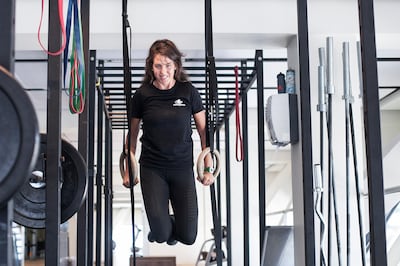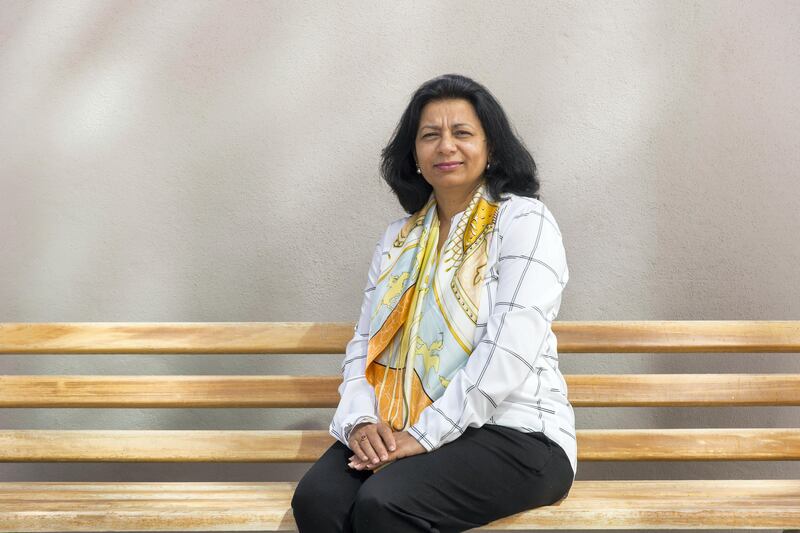Almost nine out of 10 people in the UAE are trying to manage their weight but too many are taking part in fad diets, using diet pills or even starving themselves, doctors warn.
Unhealthy and even dangerous practices were being used because people want to lose weight without having to work hard exercising to do it, they said.
The University of Sharjah surveyed 1,275 people, both Emiratis and expatriates, from all over the country, and found that people are skipping meals and not seeking specialist help with dieticians, in part because such visits are often not covered by health insurance.
Dr Fiona Rennie, a family medicine consultant at Valiant Clinic in Dubai, said she has seen many people who have gone to hospitals and clinics in other countries and picked up diet pills. These pills are usually a combination of sleep medicines, hormones, diuretics, which cause an increased passing of urine, and anti-depressants.
"I have seen this a lot and it's a really dangerous practice. Another thing I see a lot is people using meal replacement shakes, which reduces calorie consumption to dangerous levels. These will lead to rapid weight loss but that weight returns," said Dr Rennie, who encouraged people to seek help with dieticians.
"People want fast results without any hard work. They don’t want to exercise or eat healthy, they just want to lose weight. I see lots of people on diets, reducing calories to dangerous levels and over-exercising. The most dangerous is people taking prescription medication that isn’t designed for weight loss hoping to lose weight.
"People are deterred by the cost of going to a dietician but what they don’t realise is that they will save money by seeing a dietician instead of spending enormous amounts on diet pills."
Dr Amita Attlee is the lead author of the study, Assessment of Weight Management Practices among Adults in the United Arab Emirates, which quizzed participants who were all over 18 and the majority of whom were under 45.
Of the sample, 88.3 per cent had a weight management goal and, of those, 55.4 per cent were trying to lose weight, 36.2 per cent wanted to maintain weight and 8.4 per cent were trying to gain weight.
______________________
Read more:
[ Making lifestyle change requires commitment and support, people say ]
[ Post-partum exercises and the safest way to regain your shape after childbirth ]
[ Busting food myths from fat-free and sugar-free to wholewheat and fruit juice ]
______________________
Only 12.3 per cent of them visited a dietitian for information on how best to lose weight and get healthy but 17.1 per cent were taking special supplements to manage their weight, while 13.2 per said they were following a popular diet. Just over 10 per cent chose to starve themselves, while 6.7 per cent used replacement foods and 5 per cent were using some form of drugs to lose weight.
A lot more men were doing physical activity and were gym members, while the study showed that women preferred consuming fewer calories, skipping meals, consuming natural herbs and teas or visiting a dietician.
Dr Attlee, who works at the Nutrition and Health Department at UAE University, said people were turning to unhealthy methods to lose weight as they wanted a quick fix and because of “easy access to unauthenticated information on weight management on the internet, social media and online access to drugs, supplements and diet products”.
She said greater awareness of the risks of unhealthy practices could deter more people and health insurance cover for dietician visits would help too.
"Introducing health insurance coverage for dieticians’ visits, escalating the need of adopting a healthy, active lifestyle to avoid body weight issues and scaling up the health policies directed towards body weight issues into tangible strategies and actions targeting the community,” Dr Attlee suggested.

Roisin Thomas, a professional cyclist and personal trainer in Abu Dhabi, said she has seen people who have starved themselves to lose weight.
"Women go to their family and friends for advice, whereas they should be going to a dietician or a health professional. I have seen people subscribing for months to weight-loss tea. They are throwing their money away and having the same food, not training and just having tea,” said Ms Thomas.
Dr Arun Thangaraj, a specialist gastroenterologist at Aster Clinic in Karama, Dubai, warned that going on a crash diet makes you prone to gallbladder stones, while taking diuretics can alter your potassium and sodium levels.
Health insurance needs to cover dieticians: study
A higher proportion of Emiratis (17.3 per cent) reported visiting the dietitian for managing weight than expatriates (11.3 per cent), the study found.
In many instances, the study said, this could be attributed to the fact that UAE nationals have access to free healthcare.
"Awareness is required in the UAE about the ill-effects of unhealthy weight management practices and importance of dietitian's consultation to achieve the desired weight in a safe and healthy way,” the study said.
“As evident in other countries, a health insurance policy to cover dieticians’ visits within a multidisciplinary healthcare team might be a prospective approach to scale up evidence-based weight-management practices among the adult population in the UAE.”
While few people are turning to dieticians, the study found that many are seeking advice on weight management from family, friends, the internet, television, gym instructors and doctors/physicians, magazines and newspapers.






